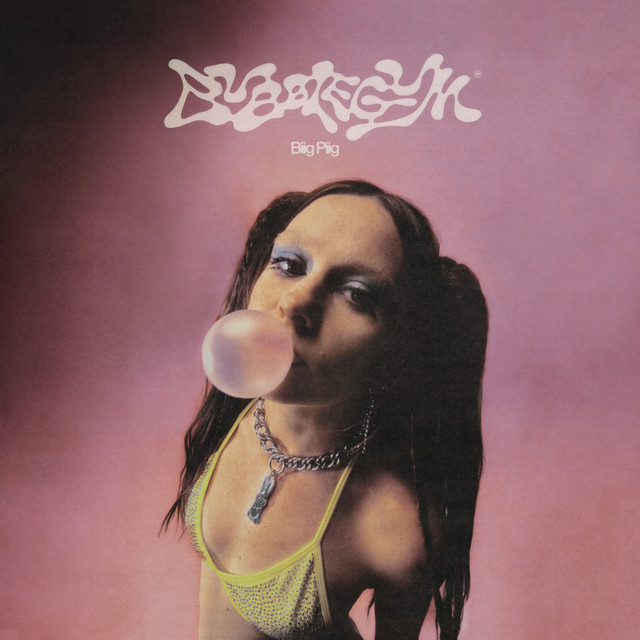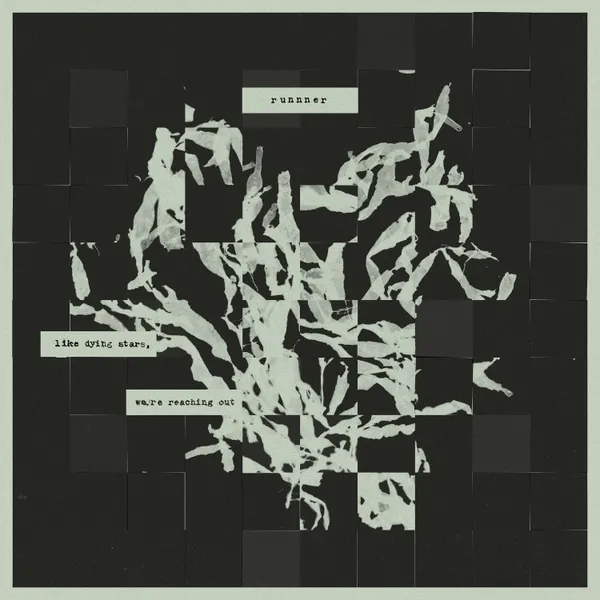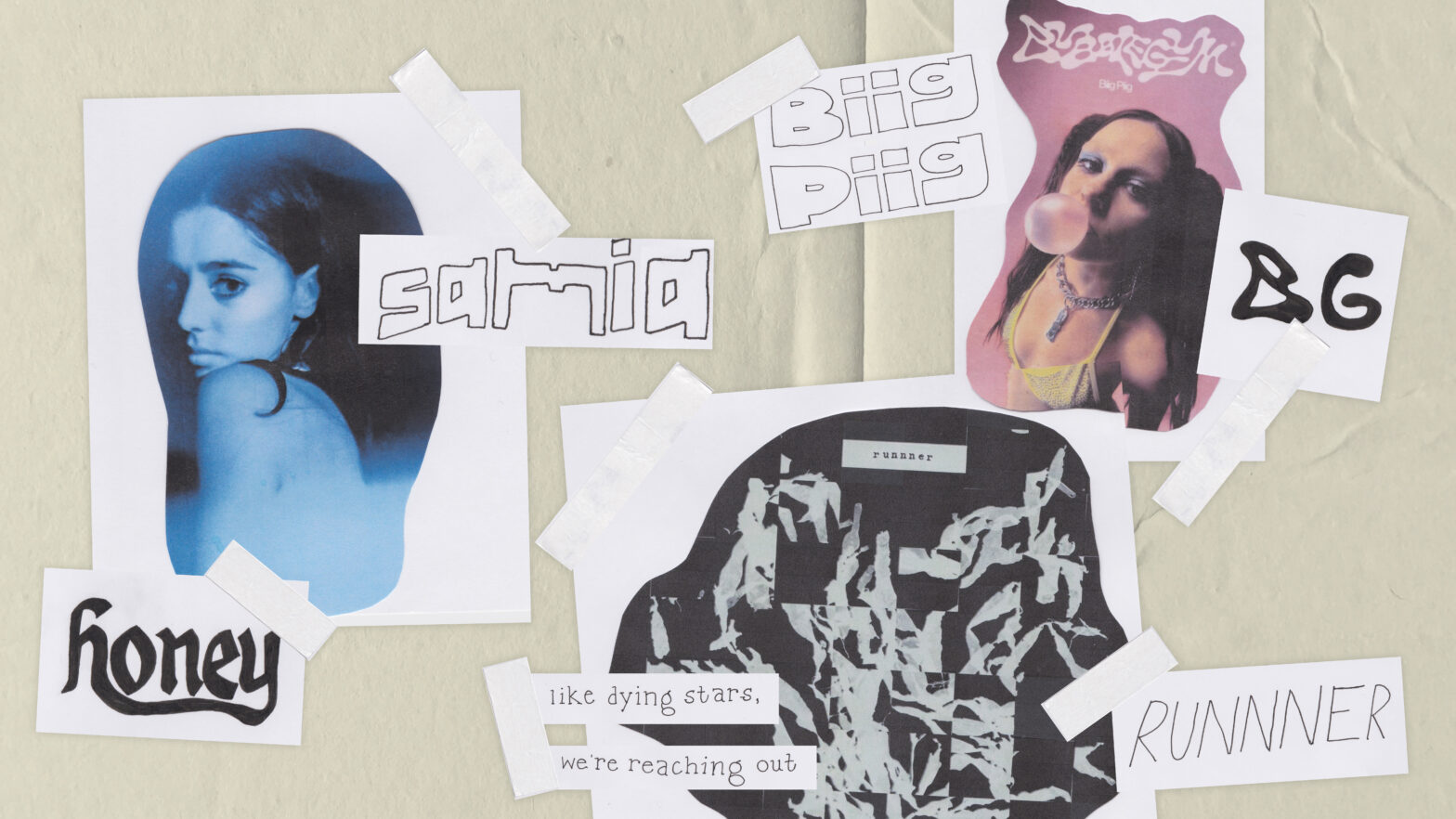In today’s cacophony of music streaming, it’s easy for some real gems to fly under the radar, unnoticed and underappreciated. Undoubtedly, this winter we have been blessed by some momentous releases in music: SZA and Caroline Polachek delivered masterpieces in their respective sophomore albums (SOS and Desire, I Want to Turn Into You); Little Simz’s surprise drop NO THANK YOU cemented her position as a leading voice in UK rap; and Kelela broke their six-year hiatus with the hypnotic Raven. Each of these records received widespread critical and commercial acclaim, deservingly so. But now we want to spotlight three releases from up-and-coming alternative artists that you don’t want to miss.
Biig Piig – Bubblegum

“Bubblegum” is a disarmingly innocent title for a mixtape that encapsulates such dark and complex emotions. In seven punchy tracks, Biig Piig, born Jessica Smyth, recounts the turbulent rise and fall of a relationship. As such, the project feels palpable with upheaval and hazy desire.
The Irish-born, Spanish-raised artist blends genres into a heady fusion of neo-soul, pop, and hip-hop. In what might just be Smyth’s most personal work to date, Bubblegum takes the darkly seductive sound exhibited on her previous 2021 EP, “The Sky Is Bleeding,” to the next level, unpacking her relationship to devastating effect.
Across the mixtape, we find Smyth at different stages in her relationship. At times, she’s love-sick, infatuated to obsessive proportions. Her smoky vocals float above bouncing drums and shining synths on “This Is What They Meant.” And on the lowkey, synth-heavy “Liquorice,” it all boils down to one simple refrain: “I wanna be the one you end up with.”
All this infatuation culminates with the mesmerizing club banger “Kerosene,” Bubblegum’s smoldering centerpiece. Here, Smyth’s desire is as flammable as the track’s namesake, and she’s ready to let it consume her: “Baby please,” she begs, “come set it all alight,” as disco-inspired strings lift the track to euphoric heights.
But these violent delights have violent ends, and cracks begin to show. Codependency takes musical form in the deceptively up-beat “Only One,” an anthem for those with an anxious attachment style: “I don’t know what I would do,” she confesses, “But I know I’m losing you.”
The subdued “Ghosting” is an ode to escapism. How many of us have had the urge to start fresh in a new city where we’re utterly anonymous? Smyth uses this track, and her experiences, as a cautionary tale: running will only get you so far. Verses delivered in Spanish reveal that Smyth may still be haunted with thoughts of her past lover.
And what are you left with in the reality of this new place? The lone guitar riff opening “In the Dark” mirrors Smyth’s own isolation. “I’m dancing to forget you,” she admits, but it’s the repeated refrain “found my home here in the dark” that closes out the project. She might be overwhelmed by the loneliness only heartbreak and homesickness can induce, but she’s determined to find a place for herself regardless.
What’s most impressive about this compact project is how Smyth can deliver lowkey grooves perfect for a hangout, alongside undeniable club cuts for the height of the party. This is done all whilst keeping the overall sound cohesive. In sum, it encapsulates the tumultuous time many experience in their twenties, marked with passion, heartbreak, and perpetual change.
Samia – Honey

A lone set of organ chords open Samia’s sophomore album “Honey.” The skeletal instrumentation on the lead single “Kill Her Freak Out” centers Samia’s vocals and lyrical prowess. Memories of a past lover are interspersed with the harsh reality of the present: they have moved on, and all she has left are ghosts. The song, and the project as a whole, is a response to a lifetime of suppressed emotions, so there’s a real sense of catharsis here. Pressure builds in Samia’s story, mirrored in the track’s production, as rumbling synths intensify the chorus’ visceral repeated refrain.
Whilst her delivery remains disarmingly level throughout, “Kill Her Freak Out” builds to a crescendo with: “I’ve never been this bad // Can I tell you something? // I’ve never felt so unworthy of loving.” A blistering confessional piece, it sets the tone perfectly for the rest of the album: often painfully specific but universal in message.
“Sea Lions” continues in this vein. It captures a friendship in disrepair. Is there anything more painful and confusing than a friend break-up? The production here once again mirrors Samia’s journey, starting out minimal as she confesses the friendship is too far gone to rescue. As the friend asks “why is your phone goin’ to voicemail,” electronic drums kick in and waves of synth-heavy reverb wash over the track, ushering in a new phase. Remaining melancholic, the song is tinged with hope, as if Samia is finally ready to leave the friendship in the past.
After listening to the record through a couple of times, an alternating pattern starts to emerge in the track-list. Half the songs on Honey are heavy, both lyrically and sonically, but Samia makes sure not to linger explicitly in this space too long.
“Kill Her Freak Out,” for example, is followed by “Charm You,” a folk-pop number that would sound right at home next to a campfire. Beneath the cheerful instrumentation, though, we find Samia with her guard up around a potential lover: “I don’t wanna make anybody mine,” she proclaims, admitting “mostly it’s just I don’t wanna end up crying.”
Similarly, piano ballad “Pink Balloon” is followed by “Mad At Me,” perhaps the breeziest cut on the record. This synthpop track is produced by Rostam Batmanglij, and his influence is palpable, especially in the guitars that close out the first chorus. Feeling light and spacious yet propelled by a distinctly liberating energy, the song is reminiscent of Carly Rae Jepsen’s “Western Wind,” also produced by Batmanglij. Samia wrote the song embodying a character who stopped caring what anyone was thinking. There’s power in her voice as she counters the chorus’s repeated refrain – “Are you still // Mad at me?” – with the simple “I don’t wanna know anymore.”
There’s a recurring theme on this record: a recognition of damaging people-pleasing, peace-keeping tendencies, and a commitment, of sorts, to live more truthfully: “Hurts to be somewhere,” Samia reflects, “’cause you gotta stay there // After you say what’s on your mind.” Wise beyond her years, Samia recognises the consequences of such a commitment.
Honey is about “telling stories, making amends, trying to show people I love them.” It might not be the most ground-breaking indie-pop record out there right now, but it is a glowing testament to taking the time to pause, reflect and grow.
Runnner – like dying stars, we’re reaching out

Noah Weinman has steadily been releasing pensive DIY-folk music under the name ‘Runnner’ since 2019. Last month, he released his debut album, “like dying stars, we’re reaching out.” The cover looks almost like an ink-blot test, fitting for a record that leaves so much room for personal projection. It’s packed with countless existential questions. “reach,” for example, is nothing but questions, endless ruminations on mental health, making progress, and asking for help. Sometimes there just aren’t clear-cut answers – but Weinman allows the listener plenty of room for reflection.
At times he offers half-answers to his self-imposed interrogations. “Do I miss you yet?” Weinman asks himself on ‘bike again,’ but is only able to respond, “I miss that place // I miss myself,” an acknowledgement, perhaps, of losing yourself in another. This cut feels like a quintessential Runnner track: a stumbling epiphany set against swelling instrumentation that builds to a crescendo of release. The light brass section that closes out the track is reminiscent of Bon Iver’s early work, and instills a welcome sense of what feels like hope. It’s Weinman at his best.
The production on this project amplifies some of the same themes explored on Runnner’s 2021 double EP “Always Repeating.” Whilst charmingly lo-fi, some of Weinman’s previous works have felt half-baked. But here, it has more of a cinematic feel. Album opener “plexiglass,” saturated in reverb, feels lush and overflowing. A singular repeated piano chord progression grounds us in the track and a reel of recorded voicemails close it out, like ghosts suspended in the past.While the production is impressive, it’s the lyricism on this project that really shines through. Weinman has an amusing knack for injecting profound meaning into the more mundane experiences of life: falling off your bike (“bike again”), overcooking your rice (“running in place at the edge of the map”), buying anti-dandruff shampoo (“raincoat”). It helps alleviate some of the heaviness from the subject-matter.
Overall, the project’s lyric-book reads like Weinman’s own personal journal. He’s self-aware and self-depreciating in equal parts, and able to paint vivid pictures that capture complex emotions using the simplest of language. Along with its bedroom recording style, it’s part of what makes the project feel so personal and intimate.
Weinman is at his best when he intersperses this straightforward and descriptive language with verses that unexpectedly bring you to your knees. “noah needs a haircut” explores the painful process of falling out of love, a not-so-unconscious uncoupling. He endearingly admits he just wants his partner to like him even when his “hair gets long and looks dumb,” before acknowledging “we were pushing away without letting go like we always do.”
“like dying stars, we’re reaching out” is an expansive meditation on connection and a pursuit of self-understanding. It’s a project to turn to when words fail you and communication breaks down; it’s insular and self-critical almost to a fault. But even though Weinman rarely reaches a satisfying point of catharsis for himself, he offers the listener a release from that destructive inner-monologue, all packaged in the form of controlled folk-rock that is melancholic, energizing, and always painfully honest.
I sometimes feel like the ‘alternative’ genre is too much of an umbrella-term, scooping up any and all artists outside of the mainstream or the commercial. It might not do the full breadth of styles and influences in these artists’ work justice – but it does mean there’s something for everybody within it. These three projects are a testament to that, and definitely deserving of your time.







